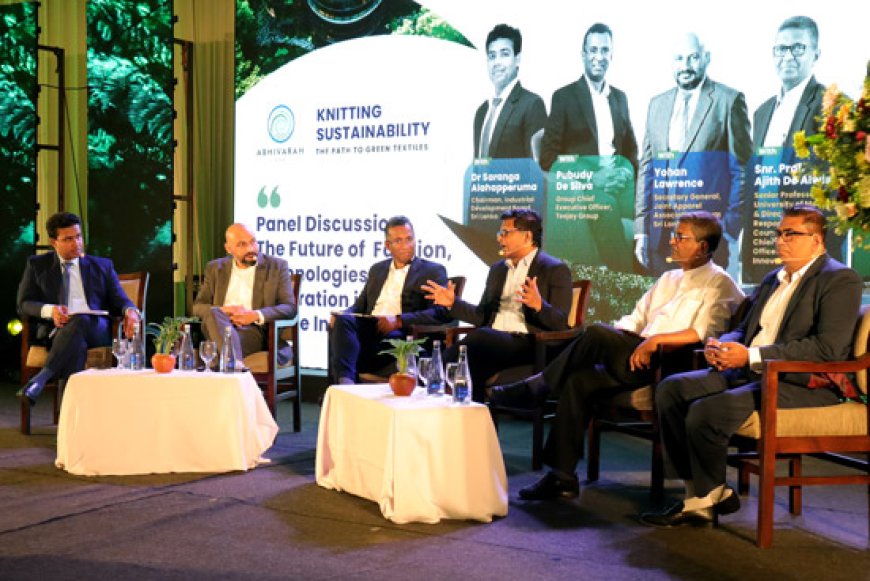Apparel industry’s call for sustainability
The Teejay Group recently held its first Sustainability Summit, highlighting the apparel industry’s urgent need for sustainable practices, especially in chemical management. Chief guest Dr. Anil Jasinghe emphasized support for smaller players and alternative financing options to make sustainability affordable. With apparel’s significant waste and emissions impact, he stressed traceability, transparency, and safe chemical handling. The EU Green Recovery Facility and "Accelerating Industries Climate Response" projects will aid Sri Lanka’s apparel sector by developing Eco Industrial Parks and a database of energy-intensive industries, supporting the country’s shift towards a greener future.

A recent Sustainability Summit addressed the pressing need for industries, particularly the apparel sector, to pivot towards sustainable practices aligned with climate change and focus on chemical management.
Sri Lanka’s pioneering multinational textile manufacturer, the Teejay Group, hosted its inaugural Sustainability Summit to underscore the importance of expanding sustainability efforts across the sector, including robust chemical management.
Chief guest Dr. Anil Jasinghe, Senior Additional Secretary and CEO of the Climate Change Office at the Presidential Secretariat, urged major apparel players to support smaller companies in adopting sustainable practices. He emphasized that while the apparel sector has thrived without substantial government aid, it’s essential now to explore alternative financing options to ensure sustainability remains financially viable.
Dr. Jasinghe highlighted that sustainability has become a necessity, not a choice, for the textile and apparel industries due to significant waste generation and carbon emissions. He also stressed that traceability and transparency are paramount, as consumers increasingly demand information on the origins and production conditions of their goods.
According to the European Parliament, the global textile sector is responsible for 10% of all greenhouse gas emissions—more than the combined emissions from air travel and shipping. Dr. Jasinghe referenced national efforts, including the National Policy on Climate Change, Nationally Determined Contributions, and the Carbon Net Zero 2050 Road Map, which prioritize green industry transformation.
He further elaborated on chemical management, explaining that safe handling, storage, and disposal of chemicals, along with shifts to safer alternatives, are critical for minimizing environmental and health risks.
The EU Green Recovery Facility, funded by the European Union, is a four-year initiative running from 2023 to 2027 that will benefit Sri Lanka’s apparel sector. This initiative supports the development of Eco Industrial Parks, with 16 of the 70 parks in Sri Lanka slated for transformation, including Katunayake, Biyagama, Seethawka, and Koggala, where many apparel facilities operate.
Additionally, the EU-backed "Accelerating Industries Climate Response in Sri Lanka" project aims to support climate change mitigation efforts. As part of this initiative, a database of energy-intensive industries will be created to aid the Central Environmental Authority (CEA) in implementing online Environmental Protection Licensing (EPL).
What's Your Reaction?










































